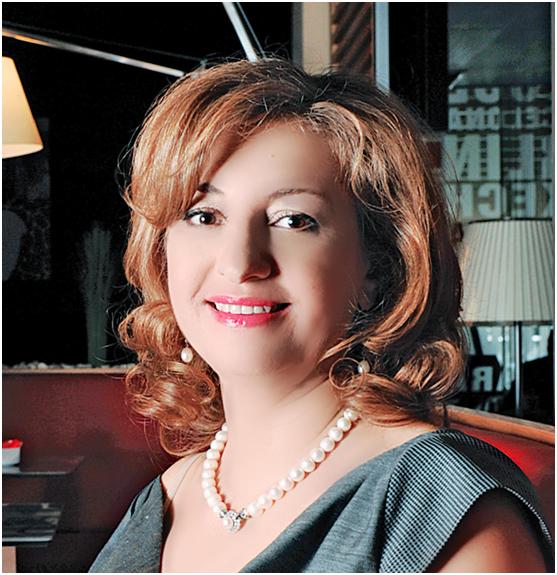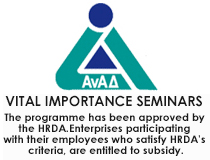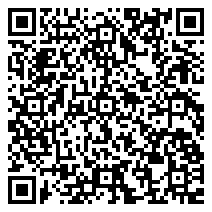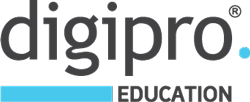Developing “Polymath Minds” with Tinkering Computational Thinking, and Robotics

Instructor
-
 Chryso ChristodoulouCEO - Founder
Chryso ChristodoulouCEO - FounderMrs. Chryso Christodoulou is the founder of FUNecole® Research Institute and the co-founder of Digipro Education Limited. Her academic background is in Computer Science and Education. She is the designer and author of the FUNecole® for Cambridge ICT Starters Initial Steps endorsed by University of Cambridge International Examinations and recognized best practice educational approach by the European Commission. Mrs. Christodoulou is an external educational expert for the Institute of Prospective Technological Studies (IPTS) on various educational research projects. She is a program committee member for the Institute of Electrical and Electronics Engineers’ (IEEE) Computer society. Mrs. Christodoulou participates as keynote speaker and panelist at numerous conferences, seminars and workshops around the world. Mrs. Christodoulou´s work has been published in scholarly and policy publications, such as IEEE Xplore and the European Parliament Magazine. She is a recognized as an entrepreneurship expert by OECD and is one of 350 European Ambassadors of Entrepreneurship.

Recent Participants

Date
- Oct 07 - 13 2018
- Expired!
Time
- 1:00 am - 8:30 am
Outline
- Schools and the Increasingly Innovative World
- Learning by Doing
- Introducing Key Programming Concepts to All Educators who are not computer specialists
- From Computational Thinking to Programming and Robotics
- Robotics: The New Literacy and Powerful Learning Tool Across All Disciplines
- Teachers (pre-school, primary, secondary, vocational, adult education)*
- Teacher trainers(pre-school, primary, secondary, vocational, adult education)*
- Curriculum coordinators/designers (pre-school, primary, secondary, vocational, adult education)*
- Head teachers/principals/deputy-assistant heads/academic heads/managers (pre-school, primary, secondary, vocational, adult education)*
*Any discipline/subject is welcomed including science, ICT/technology, engineering, mathematics, languages, business/finance, arts, sports and other.
By the end of this seminar, participants from all kinds of disciplines will be able to:
- Learn how to inspire students to develop powerful ideas, empower self-reflection, clarify their thinking and connect them to solve real-world problems
- Use computational thinking, programming languages and robotics in a broad and diverse range of disciplines
- Use creative coding through games and apps to prepare students for life and future careers
- Increase global competitiveness in science and technology innovation and improve the STEM->STREAMS understanding so as to adequately prepare students for STEM-related careers which are on the rise
- Understand the need of remixing and reusing theory as a powerful instruction methodology for enabling students to excel
- Review full demos of the latest state of the art resources, tools and curricula, such as ROBOTC® for MINDSTORMS, Raspberry Pi, and Hummingbird Robotics.
The workshop methodology aims to support participants in how to expand their own personal skills and knowledge. This aim will be accomplished by providing robust and well-designed case studies, integrating sample educational demos, presenting and discussing real-life scenarios, performing group assignments and demonstrating web-enabled tools and recourses. There will be also presentations using PowerPoint slides, videos and various other multimedia tools.
Participants will be guided in a very concise way, both on the strategic side and on the practical classroom management side. Participants will be asked to bring their own materials into the seminar and will be encouraged to interact with the lecturers and other participants. This workshop will follow a very pragmatic approach that will enable the active participant interaction.
The seminar notes are going to be available to participants in hard copies as well as in electronic form via a dedicated online class blog.
Participants are strongly encouraged to bring their own laptops.
DAY 1 – SUNDAY
16:30 – 18:30
Opening Session: Welcome and official opening session. Program overview, icebreakers, presentation of trainers and participants.
Welcome dinner.
DAY 2 – MONDAY
9:00 – 12:30
- Program overview: Connecting the Disconnected: Schools and the Increasingly Innovative World.
- Innovation eliminates traditional-structured-routine jobs
- The global need for creative problem solvers
- How schools kill creativity
- Fostering and nurturing creativity
- Rethink of innovative pedagogy curriculum and assessments
14:00 – 16:30
Empowered by Tinkering: Learning by Doing
Tinkering provides students opportunities to design, invent, innovate and create.
- How do students really learn?
- Which computational and programming concepts should be introduced?
- What games and exercises enhance teaching concepts in fun, authentic and creative ways?
- How do programming ideas, programming languages and robotics support concrete ways of thinking?
DAY 3 – TUESDAY
9:00 – 12:30
Introducing Key Programming Concepts to All Educators even the non-computer specialists.
- Introduction to the fundamentals of programming and computational thinking
- Boosting confidence in working with technology
- Use of computational thinking in broad range of disciplines
- Enhancement of student understanding through working on projects, both unplugged and on a computer, using the Scratch programming language.
- Development of ideas for using object-oriented programming in the classroom
- Introduction to the “Internet of Things”
- Exploring how Arduino adventures foster creativity and collaboration.
14:00 – 16:00
Case study: Creative Coding Through Games and Apps
Present creative coding through games and apps. Present ways of preparing students for life and careers in the contemporary world. Students can be creative, learn best by doing, and get more socially engaged when they play.
DAY 4 – WEDNESDAY
09:00 – 10:15
- Develop knowledge of simple creative electronics
- Set up your Raspberry Pi and write your first program using block-structured programming language
- Develop a new generation of tools, activities, and spaces to support playful investigation and experimentation while integrating digital and physical materials
- Get involved in activities that enable student participation in new types of inquiry into light, sound, motion, and even storytelling
- Demonstrate “light play” examples where students can use program colored lights and moving objects to create dynamic patterns of shadows.
14:00 – 16:00
Practical Group Work 1: Making it happen
Moving from vision to reality by developing initiatives and strategies, teachers from all disciplines and levels can get involved, achieve learning goals and share individual experiences.
DAY 5 – THURSDAY
9:00 – 12:30
From Computational Thinking to Programming and Robotics
1. Learn to Code – Code to Learn
- The benefits of using the algorithmic process for all disciplines. How students can use mathematical and computational ideas to enhance their understanding and to make connections across disciplines.
- How students can formulate strategies to solve problems, design projects, communicate ideas and collaborate.
- How students can reuse and remix coding projects and other kinds of projects (from Math, Science, Arts, Music) to innovate and excel. We will present how students use existing solutions to achieve much more complex outcomes than they could have done without technology.
2. Computational thinking
- How computation thinking can be used not just for computer scientists but for everyone, regardless of age, background, interests or occupation.
14:00 – 16:30
Case study: “Remixing and Reusing” – A Pathway to Learning
The “Remixing” theory was tested using data from more than 2.4 million multimedia programming projects shared by more than 1 million users in the Scratch online community. First, we will see how users who remix more often have larger repertoires of programming commands. Then, we will see how exposure to computational thinking concepts through remixing facilitates the use of those concepts. These results support that young people learn through remixing, and have important implications for designers of social computing system.
DAY 6 – FRIDAY
09:00 – 12:30
Robotics: The New Literacy and Powerful Learning Tool Across All Disciplines
Robotics is a great way to get students excited about science, technology, engineering, and math (STEM) and to engage them in complex, strategic problem-solving. It introduces students to concepts and skills that are needed for understanding the intelligent, highly interactive information-based technology of the future.
- Introducing the STEM-> STREAMS approach with LEGO MINDSTORMS® Education Robotics in High Schools
- Using LEGO components, sensors, and NXT module concepts, such as gear ratios, friction, potential energy, kinetic energy, and oscillations
Introducing the Hummingbird Robots
- How Hummingbird Robots facilitate teaching and enhance creativity
- Using Hummingbird Robots to design models from the real world
- Programming with Scratch and Hummingbird Robots to engage children in all disciplines, such as Science, Languages, Arts, Engineering, Technology and Mathematics
14:00 – 16:30
Practical Work 2: Parallel Workgroups by Participants
DAY 7 – SATURDAY
- Participant Presentations
- Facilitate interactive group discussions and course evaluation.
- Course final conclusions and course closure.
Farewell lunch
The event is finished.

SUBSIDY, ATTENDANCE, AND CANCELLATION POLICY
HRDA Subsidy and Seminar Attendance
- A company’s participant is eligible for a subsidy when their Social Insurance and Industrial Training contributions have been settled in full by the time of registration/seminar. In case of ineligibility/disqualification, the company will be invoiced the full amount per participant.
- A company’s participant is eligible for a subsidy if he/she completes an obligatory attendance of 75% or more (both during seminar and company visit). In case of failure to complete the attendance, the company will be invoiced the full amount, per participant.
Cancellation and Substitution Policy
- Cancellations can be accepted up to 5 working days prior to the seminar without penalties. For any cancellations received after the deadline (or no-shows), the company will be invoiced the full amount per participant.
- Substitutions can be accepted any time prior to the seminar without penalties.
- Τhroughout the seminar participants must have their camera and microphone open, for better communication and as defined by the specifications of HRDA otherwise participants will not be approved by HRDA.

